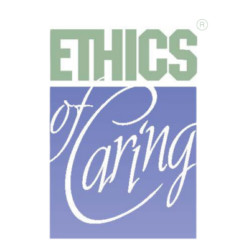“To me, the nurse-patient relationship is at the core of all effective care, and it always has been. How can you effectively treat a person without understanding them, in all their context? If patients have a right to autonomy, the only way to fulfill that right is to understand what each patient needs, what they want, and what is possible for them—which involves connection, trust-building, conversation and openness.”
Keynote Day 1: SARAH DIGREGORIO
Author of Taking Care: The Story of Nursing and its Power to Change Our World
Click to Share this 2024 Spotlight!
Q:
The theme for this conference is “Claiming Meaning and Purpose in Nursing: Why It Matters.” From your perspective, what is the meaning and purpose of nursing? How does this theme resonate with your current research or practice?
I am not a nurse, so my understanding of the meaning and purpose of nursing comes from many
interviews with nurses and patients, and from my own experiences in health care settings as a family
member and patient. I believe the meaning and purpose of nursing is grounded in universal experiences of human vulnerability, and the ways that nurses, with their combination of biomedical expertise and people-centered relationship skills, can guide people through those times of vulnerability, using their expertise to alleviate suffering and to ease transitions. That means, of course, managing patient’s physiologies, but also having the skills that allow the relationship between nurse and patient to be a source of connection and comfort, a source of insight and information (in both directions), and an opportunity to allow our full selves into the health care setting, which can otherwise feel dehumanizing and fracturing. Nurses can meet people in their most vulnerable moments and use their expertise to connect, to heal, to educate and to guide. Personally, I learned at a very young age through my parents’ illnesses, that nurses are often the only ones in health care settings who can hear you, see you and help you—and that those moments of connection can be incredibly profound for patients and their families.
– Sarah Digregorio
Q:
In addition to core ethical concepts and principles, clinical ethics is about relationships and values.
How does nursing’s relational framework influence the ability to fulfill ethical obligations?
To me, the nurse-patient relationship is at the core of all effective care, and it always has been. How can you effectively treat a person without understanding them, in all their context? If patients have a right to autonomy, the only way to fulfil that right is to understand what each patient needs, what they want, and what is possible for them—which involves connection, trust-building, conversation and openness. In my experience, nurses excel at this, and the fact that nursing as a discipline prioritizes relationships as a source of insight and information is key to the power of nursing. Of course, the problem is that our health care systems are not set up to prioritize relationships (or, really, nursing expertise), and this can lead to moral injury among nurses, who are sometimes unable to practice in the ways they find most ethical.
– Sarah Digregorio
Q:
Are there ethical dilemmas or questions that are trending in your line of work right now?
Journalists strive to be impartial, to deliver factual stories that are in the public’s interest to know. In reality, impartiality is never entirely possible. We are all, always, making decisions about which experts to quote, which stories to cover and how to frame them. Those choices are based on judgement, and while I think it is incredibly important to be fair and consider all the facts and facets of every story, the reality is that complete impartiality is impossible, and perhaps not even desirable. The requirement to show impartiality has led the media to present “both sides,” even when one side is based on falsehood. That doesn’t serve readers well. So I think journalism as a whole really needs to reckon with its purpose, which is a responsibility to help readers understand what is true, and what is not, and why it matters. That might mean seeming to take a “side,” when really it is in the service of that responsibility to readers.
– Sarah Digregorio
Q:
Can you tell us where you are finding meaning and purpose in your professional life? In your personal
life?
I find meaning and purpose in my work; I see myself as the carrier of the stories that people share with me, and I am always trying to honor those stories, by telling them accurately and fully, so that their meaning can be understood. I think that stories are how humans make meaning of our lives. I hope that the stories I tell can, in some small way, lead to change, to connection, to justice. In my personal life, I find meaning and purpose in reading and talking with my nine-year-old daughter, in being with my husband and our two cats and a dog, and in being a part of my Brooklyn community.
